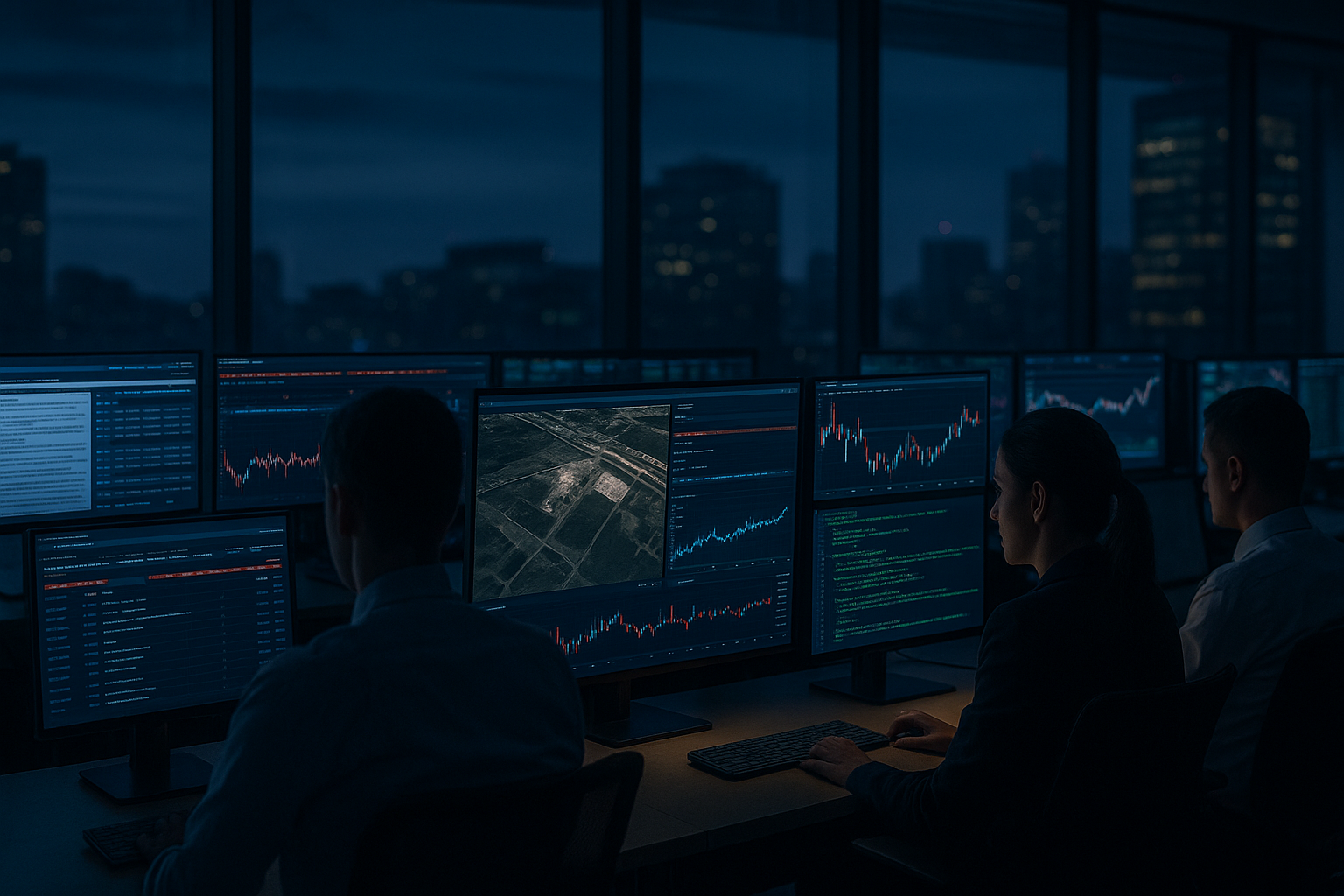Ever watched a stock soar minutes after news breaks and wondered, "Who the hell knew this was coming?" You're not alone.
That Alaska wildlife drilling announcement that sent certain energy stocks rocketing 15% before most traders even saw the headline? It's the kind of thing that makes regular investors slam laptops shut in frustration.
I've spent years covering financial markets, and let me tell you—what looks like insider trading often isn't. At least not technically.
The reality of Wall Street's information advantage is both simpler and more complex than most people imagine. And having interviewed dozens of traders, analysts, and compliance officers about this very issue, I can tell you the "leak" ecosystem works differently than most outsiders think.
Here's the uncomfortable truth.
What appears to be privileged information frequently boils down to something more mundane: institutional muscle. Big players deploy resources most of us can't fathom—armies of analysts whose sole job is monitoring regulatory websites, scanning court filings, and tracking agency calendars with obsessive precision.
"We don't need illegal tips," a hedge fund analyst told me over coffee last year (requesting anonymity, naturally). "We just need twenty people watching twenty different information sources that the average investor doesn't even know exist."
This information velocity advantage means when a decision is imminent—like those Alaska drilling permits—they're positioned to pounce milliseconds after the news posts. Sometimes even before it officially hits the wires.
Then there's pattern recognition.
Veterans who've spent decades in specialized sectors develop what one energy trader called "regulatory intuition." They notice when an agency's meeting agenda shifts slightly. They catch the environmental secretary's unusually upbeat tone during a press conference. Small tells that mean nothing to outsiders but everything to insiders.
Look, the markets have always rewarded specialized knowledge. That's not new. What's changed is the sophistication of the information-gathering apparatus.
Consider the algorithmic advantage. Programs now scan news sources, regulatory filings, and—yes—social media for relevant keywords, making trading decisions faster than you can blink. One quant developer (who used to work at a major investment bank) explained their system could detect and trade on news before human traders even finished reading the headline.
So when that drilling announcement "leaked," what likely happened? Someone who follows environmental permitting processes noticed unusual activity patterns. Maybe a specialized law firm had associates monitoring the relevant agency. Perhaps satellite imagery showed unexpected movement at potential drilling sites.
Is it fair? Probably not. Is it illegal? Usually not.
The system's biggest "edge" typically isn't someone whispering secrets in ears at martini bars (though that does happen occasionally). It's the perfectly legal aggregation of publicly available information, analyzed faster and more thoroughly than regular folks can manage.
I remember covering a pharmaceutical approval that seemed to leak hours before the official announcement. After investigation, it turned out a specialized consulting firm had simply counted cars in the FDA parking lot that weekend—noticing an unusual number of vehicles suggested an emergency meeting was happening. Creepy? Maybe. Illegal? No.
What's an individual investor supposed to do against this machine?
First—and this might sound counterintuitive—stop trying to compete on speed. You'll lose. Every time.
"The biggest advantage individual investors have is time horizon," explains Maria Gonzalez, a former institutional trader who now advises individual investors. "While institutions fight for pennies on minute-by-minute moves, individuals can focus on value that emerges over months and years."
Second, develop actual expertise in something specific. The Intel gain mentioned earlier? That's what sustainable investing looks like. Not glamorous, not overnight, but real.
And third... be extremely suspicious of anyone promising you "insider tips." By the time information reaches Reddit forums or Discord channels, the real money has been made. Those venues are (forgive the bluntness) where uninformed investors exchange misinformation with other uninformed investors.
The uncomfortable paradox of markets remains: what seems like privileged information to outsiders often looks like obvious conclusions to those who've done their homework better than everyone else.
That doesn't mean insider trading doesn't exist—it absolutely does, despite regulatory efforts. But it's rarely as widespread as conspiracy theorists suggest, and hardly ever as dramatic as depicted in shows like "Billions."
Most of what looks like "leaks" is just the application of resources, expertise, and focus that most of us simply don't have.
And that's perhaps the most frustrating truth of all.
